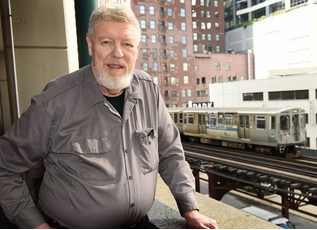In an August 16, 2022 blog entry, Patrick T. Reardon stepped into his wayback machine and reviewed Updike’s most famous novel from the mindset of a 21st century “essayist, poet, literary critic and an expert on the city of Chicago.” Reardon, who has written about his Catholic faith and was a longtime reporter for the Chicago Tribune, began,
“At the start, Harry Angstrom, nicknamed Rabbit, is running away. Later, he is running to—to the hospital. At the end, he is running willy-nilly, without direction, into the unknown.”
Reardon broke the novel into three acts, with the first ending when Rabbit hooks up with his old coach Marty Tothero and the prostitute Ruth. The second section “opens two months later and covers Rabbit’s life with Ruth, a life abruptly fractured when Janice goes into labor, Rabbit runs to the hospital in Brewer and moves back in with his family, now with a new daughter Rebecca June. The third section, much shorter, just 37 pages, has to do with tragedy. And it ends with Rabbit wandering away from a cemetery and then, in ‘an effortless gathering out of a kind of sweet panic,’ breaking into a run.'”
“As I was working my way through the first section of Rabbit, Run,” Reardon wrote, “I was puzzled that anyone would want to read so much about a guy who seemed aimless, selfish and irresponsible. By the time I finished the book, I was far beyond such puzzlement. I wanted to know what happened next to Rabbit and immediately ordered a copy of Rabbit Redux.”
“As for Harry Angstrom, I came to find him compelling for the same reasons I initially found him distasteful. Rabbit is an existential Everyman who is searching for a life that’s equivalent to the feel of taking a shot and seeing the basketball go in through the ‘high perfect hole,'” Reardon wrote.
Reardon concluded, “When Rabbit runs, it seems that he is fleeing. But that’s not exactly true. Neither is he running toward something. He is, throughout Rabbit, Run, grasping for, searching for, yearning for a ‘high perfect hole’ of meaning. . . . But it can’t be found. So, like the instinctual young child who is filled with feelings and desires for which there is no language, he leaves behind the mental and the emotional and opts for the physical. He runs.”

